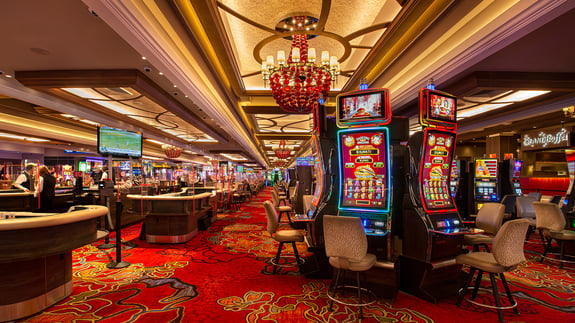
Gambling in casinos has long been a subject of interest and debate, drawing in millions of players around the world. With a blend of chance, strategy, and the excitement of risk, casino games offer an exciting escape from everyday life. However, as entertainment becomes ever more accessible, it calls for a more thorough examination of the ethical implications surrounding these games.
At the heart of the debate lies the question of whether casinos promote safe gambling or take advantage of at-risk individuals. The appeal of potential winnings versus the reality of losses can create a challenging dynamic, and understanding this balance is essential for both players and operators. As we delve into the morals of casino gaming, we will explore the responsibilities of casinos, the effects on society, and the steps that can be taken to foster a better gaming environment.
The Impact of Casino Gaming on Society
Casino gaming has a considerable influence on societal dynamics, affecting not only the financial landscape but also interpersonal dynamics and community structures. The income generated from casinos can lead to employment opportunities and boost regional economies, as they provide multiple employment opportunities in different sectors including hospitality, leisure activities, and shopping. However, while the financial benefits can be significant, communities often struggle with the possible negative impacts that arise from higher gambling activity.
Moreover, the presence of casinos can lead to an rise in gambling addiction, presenting significant challenges for individuals and families. The thrill of casino games can quickly evolve into a habitual habit, affecting personal relationships and leading to monetary issues. Many players may find it difficult with the loss of control over their gambling behaviors, resulting in a need for community support services and interventions to address this growing issue. The social cost of gambling addiction can extend through kinships and neighborhoods, creating an urgent need for responsible gaming initiatives.
In addition to the economic and social consequences, casino gaming often showcases cultural attitudes towards risk and entertainment. It can encourage a sense of excitement and leisure, attracting tourists and boosting local travel. However, this allure may also conceal the broader implications of gambling as a form of entertainment, raising ethical questions about its advertisement and accessibility. As communities weigh the advantages and drawbacks of casino gaming, the need for sensible approaches and oversight becomes increasingly critical in ensuring that the positive aspects are maximized while minimizing the negative effects.
Ethical Concerns in Gambling Practices
The ethics of casino gaming often revolve around the potential for addiction and its effects on people and families. Betting can lead to significant monetary distress, impacting not only the betters but also their families. 78 win As individuals become entrapped in the allure of winning, many lose sight of their financial limits, which can result in catastrophic outcomes such as insolvency. This raises moral questions about the duty of gambling establishments in promoting safe gaming practices and providing support for those who may be struggling with gambling addiction.
Another major issue is the advertising of gambling to vulnerable populations. Casinos often aim at low-income people or neighborhoods with the promise of fast gains, which can perpetuate cycles of financial struggle and hopelessness. In this context, the morality of marketing strategies used by gambling establishments come under scrutiny, as they may exploit the desperation of people seeking an way out from financial hardships. This exploitation raises ethical questions about the honesty of the betting industry and its responsibility to protect its most vulnerable patrons. https://78win.wiki/
Additionally, the impact of casino operations on the community as a entirety cannot be ignored. While some argue that gambling establishments create jobs and stimulate local economies, others point to the social costs associated with dysfunctional betting, increased criminal rates, and a burden on public services. Balancing financial advantages with the risk for community issues presents a complex moral dilemma for policymakers and gambling operators alike. The difficulty lies in discovering a ethical approach that takes into account the welfare of people and society while still allowing for the pleasure of casino activities.
Oversight Framework and Obligations
The regulatory framework surrounding gambling operations is developed to ensure fairness, honesty, and participant security. Various government bodies and gaming commissions establish and enforce regulations that dictate how casino operations operate, the standards for activity creation, and the protocols for processing winnings. These regulations vary by locale but commonly involve licensing requirements for operators and stringent measures to prevent cheating and fraud.
In also to regulatory bodies, gambling operators bear major responsibility in upholding principled standards within their venues. They must enforce safe gaming practices that support gambler security and consciousness, including offering self-ban options and sharing information about the hazards associated with betting. Operators are also accountable for educating employees to spot signs of problem gaming and understand the correct actions to help customers in need.
Moreover, openness in gaming operations is crucial for building and maintaining public faith. Gaming establishments should offer clear details about the chances of operations, promotional offers, and any related risks. By creating an environment of integrity and responsibility, gambling establishments can help reduce the potential negative impact of gaming while boosting the complete gaming experience for all participants.